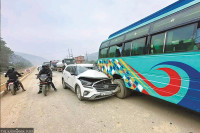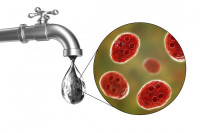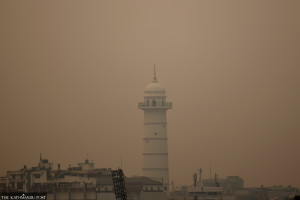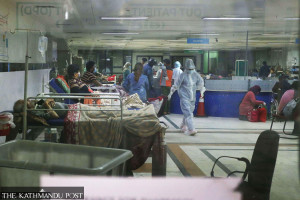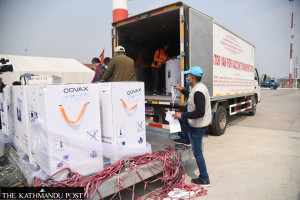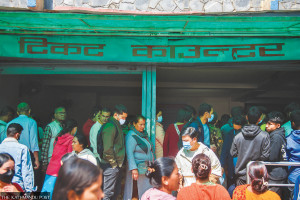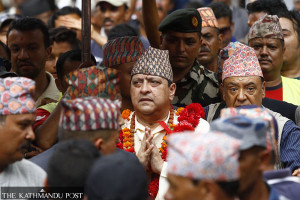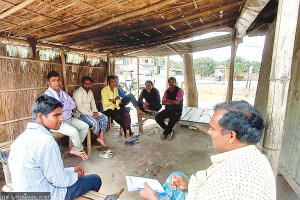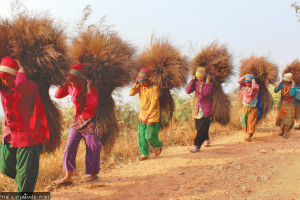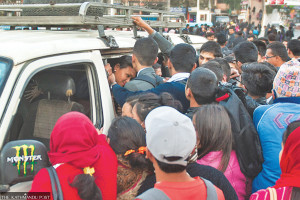 27.12°C Kathmandu
27.12°C KathmanduHealth
Panel recommends prioritising risk groups for second booster shots
National Immunisation Advisory Committee also recommends the health ministry to inoculate children between 5 and 11.
Post Report
A recent meeting of the National Immunisation Advisory Committee has recommended that the Ministry of Health and Population prioritise risk groups while administering second booster shots for Covid-19.
The expert panel’s recommendation comes amid reports of an uptick in severity and deaths from the coronavirus infection in some age and risk groups.
“The committee has recommended the ministry prioritise people from certain age brackets and risk groups,” said Dr Abhiyan Gautam, chief of the Immunisation Section at the Family Welfare Division under the Department of Health Services. “Experts who took part in the meeting have recommended inoculating children between five and 11 who missed the coronavirus vaccine.”
Health authorities across the country are currently administering second booster shots to everyone above 55 years of age, all health workers, those with compromised immunity and people suffering from chronic diseases.
Immunisation workers, however, have been administering the jabs to everyone above 12 years seeking inoculation due to low vaccine uptake rate in the priority groups.
The health ministry has said that at least 11 people have died due to coronavirus infections after the onset of the new wave of the pandemic triggered by XBB.1.16 sub-variant of Omicron.
Infectious disease experts, as well as doctors attending to infected patients, say that those who have not taken any shots against the virus, elderly and comorbid people are falling seriously ill due to the infection.
Nepal has been using Pfizer-BioNTech’s bivalent vaccine as booster shots.
It is the only bivalent jab that has got an emergency-use authorisation from Nepal’s drug advisory committee.
The bivalent vaccine includes a component of the original virus strain as well as a part of the Omicron variant to provide broad protection against Covid-19.
The vaccine is called a bivalent Covid-19 shot as it contains two components—the original virus strain and Omicron BA.4 and BA.5 sub-variants. Doctors say a bivalent Covid-19 vaccine may also be referred to as an “updated” Covid-19 vaccine booster dose.
According to Gautam, the health ministry has requested the COVAX facility for an additional 1.5 million doses of the bivalent jab.
Meanwhile, the expert panel also recommended that the authorities concerned administer coronavirus vaccine to children between five and 11 years of age. It is estimated that around one million children between five and 11 have not yet been vaccinated against Covid.
‘Thousands of children have reached five after the vaccination programme for that age group stopped,” Gautam said. “We were planning to bring paediatric doses of vaccine for those age groups and the expert panel also recommended the same.”
So far, Nepal has used Covid vaccines developed by the University of Oxford and the pharmaceutical giant AstraZeneca, manufactured in various countries of Europe, India and Japan, the Chinese Vero Cell, and the US-made Janssen, Moderna, and Pfizer-BioNTech.
Government records show as many as 12,030 Covid-related deaths so far in Nepal.







